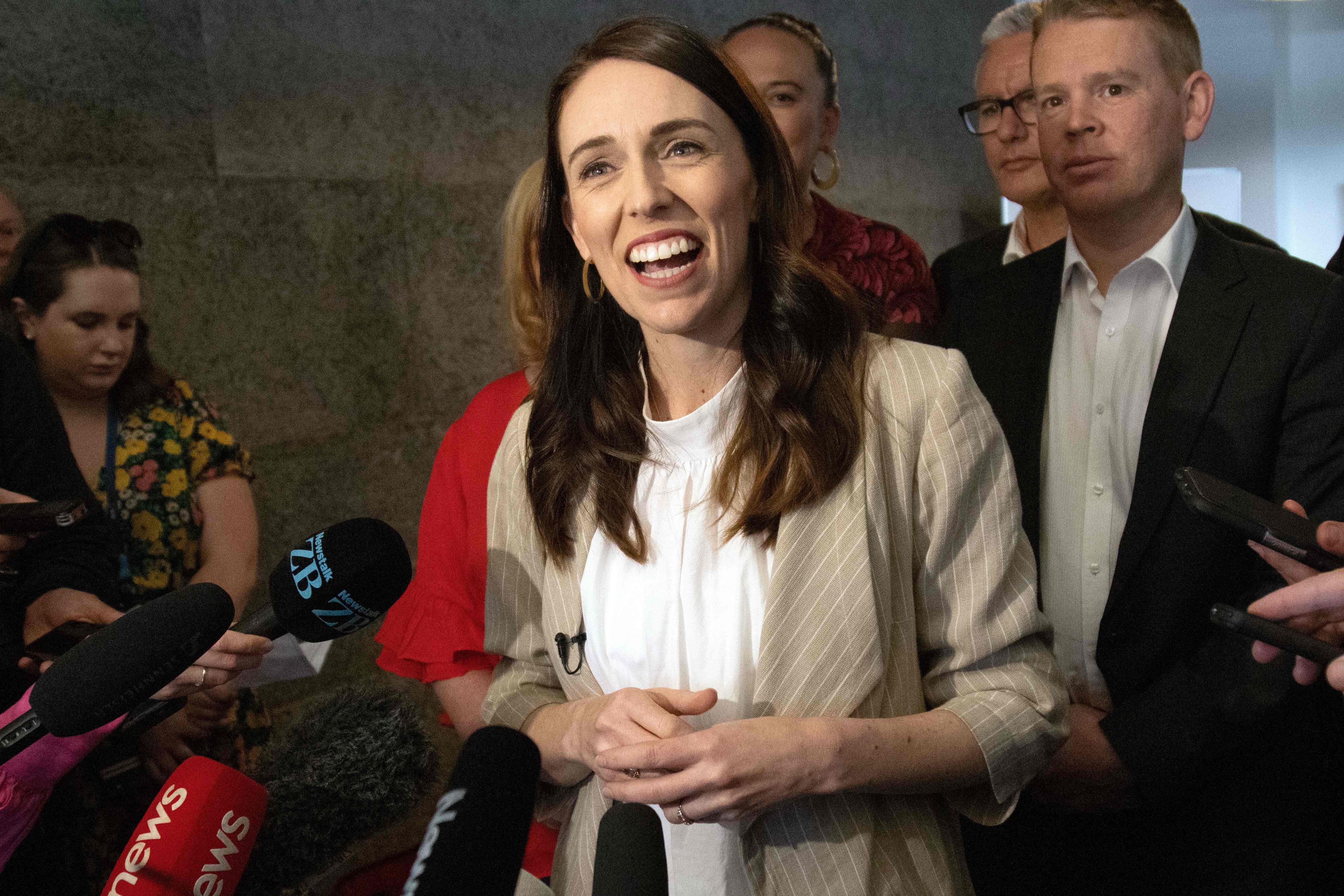New Zealand election: New parliament set to be its most inclusive ever
Besides prime minister Jacinda Ardern, female politicians form a significant chunk of New Zealand’s newly elected parliament

With several members of the LGBT+ and indigenous Maori communities, a broader range of racial backgrounds and a higher number of women and green leaders, New Zealand’s newly elected parliament is set to be the most inclusive ever.
Led by prime minister Jacinda Ardern, the centre-left Labour party won 64 of 120 parliamentary seats on Saturday, giving it enough members to rule alone.
More than half of Labour’s MPs are women. In 2017, Ms Ardern – who has campaigned as a progressive leader and supporter of woman’s rights and inclusivity – became at the time the youngest woman ever to lead a country.
Ms Ardern received widespread praise for the way her government has handled the spread of coronavirus, leading Labour to the first outright majority won by any party sine the country switched to a proportional representation system in 1996.
Yet local media report that Ms Ardern is considering forming an alliance regardless, with talks underway between Labour and the Green Party, allies from the previous government. The Greens won 10 seats with about 7.6 per cent of the vote share and the majority of their successful MPs are women, indigenous leaders or from the LGBT+ community.
Regardless of party, according to Reuters about 10 per cent of the new batch of parliamentarians openly identify as lesbian, gay, bisexual or trans.
They include prominent figures like finance minister Grant Robertson, as well as Ricardo Menéndez March, a gay migrant who is going to be country’s first parliamentarian of Latin American origin; Ibrahim Omer, the first of African origin; and Vanushi Walters, who is going to be the first Sri Lankan-origin parliamentarian.
Paul Spoonley, professor at the College of Humanities and Social Sciences of Massey University in Palmerston North, told The Independent that the new parliament represents an important generational change.
“A number of longstanding MPs – older, white, male – have left but they have been replaced by a much more diverse new intake – Maori, Pasifika, other ethnicities and the Rainbow community. Half of the Labour caucus are women. The Labour party and the Greens represent the contemporary face of New Zealand in Parliament,” Spoonley said.
Dr Lara Greaves from the University of Auckland told Stuff that “while there was yet to be a full breakdown of MPs and their identities, it [is] shaping up to be much more diverse than previous governments.”
Professor Spoonley said that while there were right-wing fringe groups who campaigned in the election with views imported from the likes of QAnon in the US, they received very few votes.
“The most charismatic candidate, Billy Te Kahika, did not even get 1,000 votes in his electorate," Prof Spoonley said. "So New Zealanders rejected these conspiratorial views in favour of centre-left politics and a much more diverse set of representatives. It reflects the empathetic approach, and competent management, of Jacinda Ardern as the sitting prime minister.”



Join our commenting forum
Join thought-provoking conversations, follow other Independent readers and see their replies
Comments